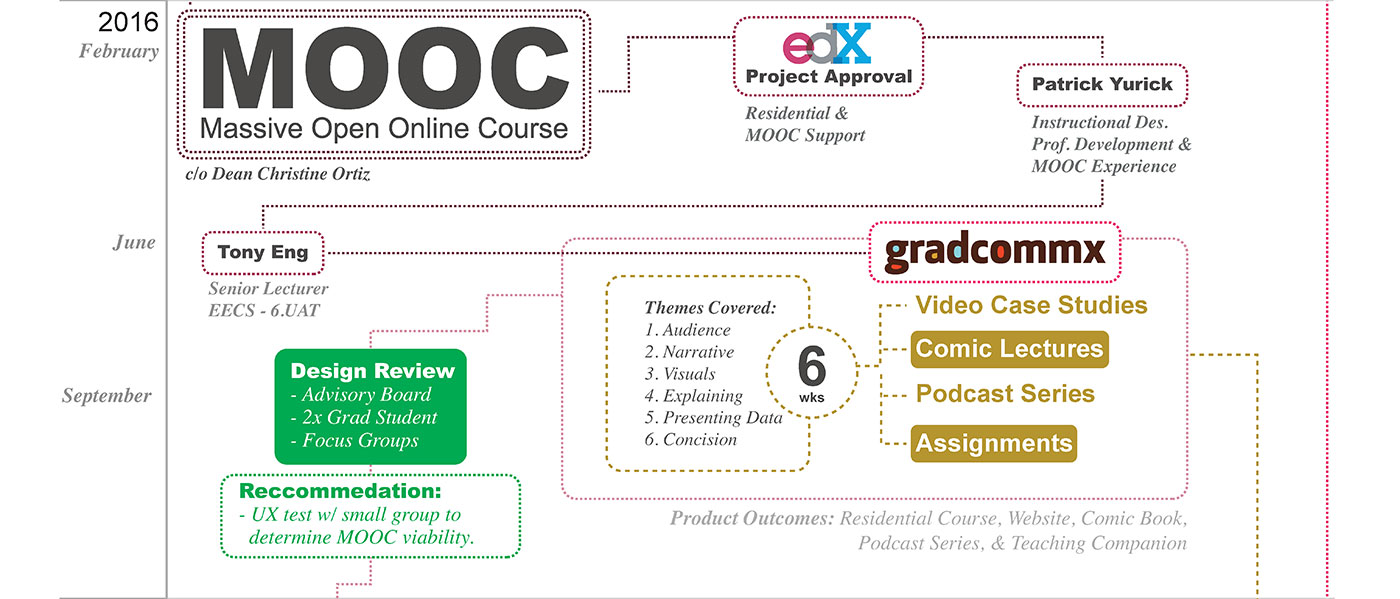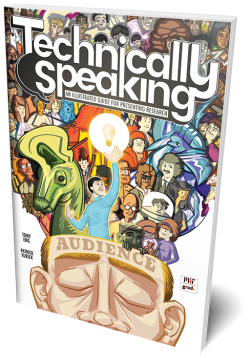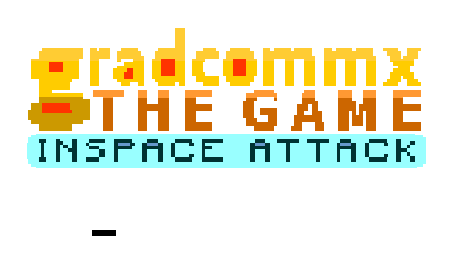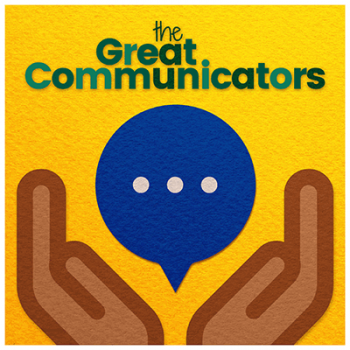
In the winter of 2016, in response to findings made by the Task Force on Graduate Student Professional Development, the MIT Office of Graduate Education (OGE) embarked on a mission to find the best way(s) to connect the entirety of the MIT graduate student population with high-quality professional development resources in communication, as a first area of focus within the defined set of professional skills.
The resulting project was called Gradcommx. Over the course of 2.5 years, Gradcommx tested pedagogical approaches using modern media such as comic books, podcasts, live micro-workshops, and even an online game. In the final year of the project the Teaching & Learning Lab teamed up with Applied Curiosity Educational Research to evaluate the efficacy of these approaches.
Pedagogy
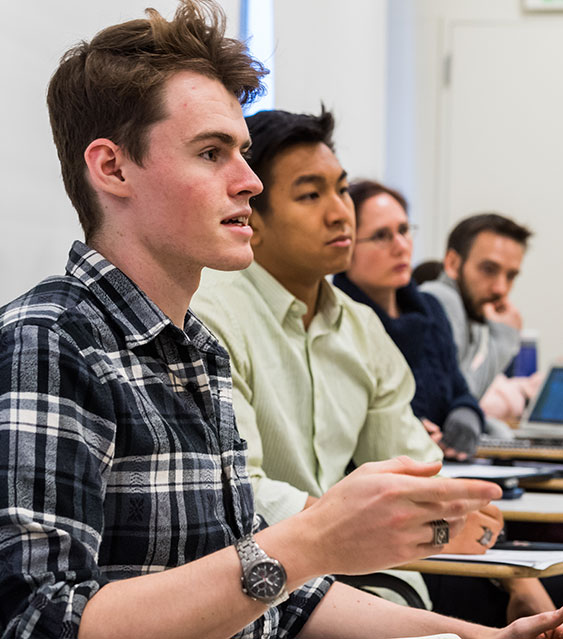
Gradcommx was designed to address broadly transferable skills rather than discipline-specific training. As outlined in the TFPRO report (Final Report of the Task Force on Graduate Student Professional Development), the onus of Gradcommx will hold that ”simplicity is a virtue” in regards to the design of the curriculum (2013, p. 4). This sentiment is outlined further in the TFPRO report:
“We considered whether to include the discipline-specific training, knowledge, and skill development that lie at the heart of every MIT graduate program. Should the skillset include a section for technical skills and domain knowledge? We decided to exclude that category, as in many ways it is already the core of what we do in an MIT education, and its specifics would vary greatly across programs.” (2013, p4)
Gradcommx was designed to be a primer, or potential jumping-off point for further in-depth inquiry into discipline-specific training in any of MIT’s five schools. This baseline of communications professional development for graduate students was designed to be built upon and modified by each of the schools at their discretion.
The graduate student body at MIT is diverse and communication norms vary widely by discipline. The resources available on gradx.mit.edu are not designed to address those varying norms, but to serve as a professional development primer for non-specific external audiences.
Instructional Design Principles
For all Gradcommx Elements
Media Design
Because this course is designed to serve the ongoing professional development of graduate students at MIT, the design of the multimedia reflects portability, accessibility, and customization. Therefore, the multimedia for this course builds upon itself so that it can be used effectively in multiple contexts for differentiated learning.

Media Design Principles

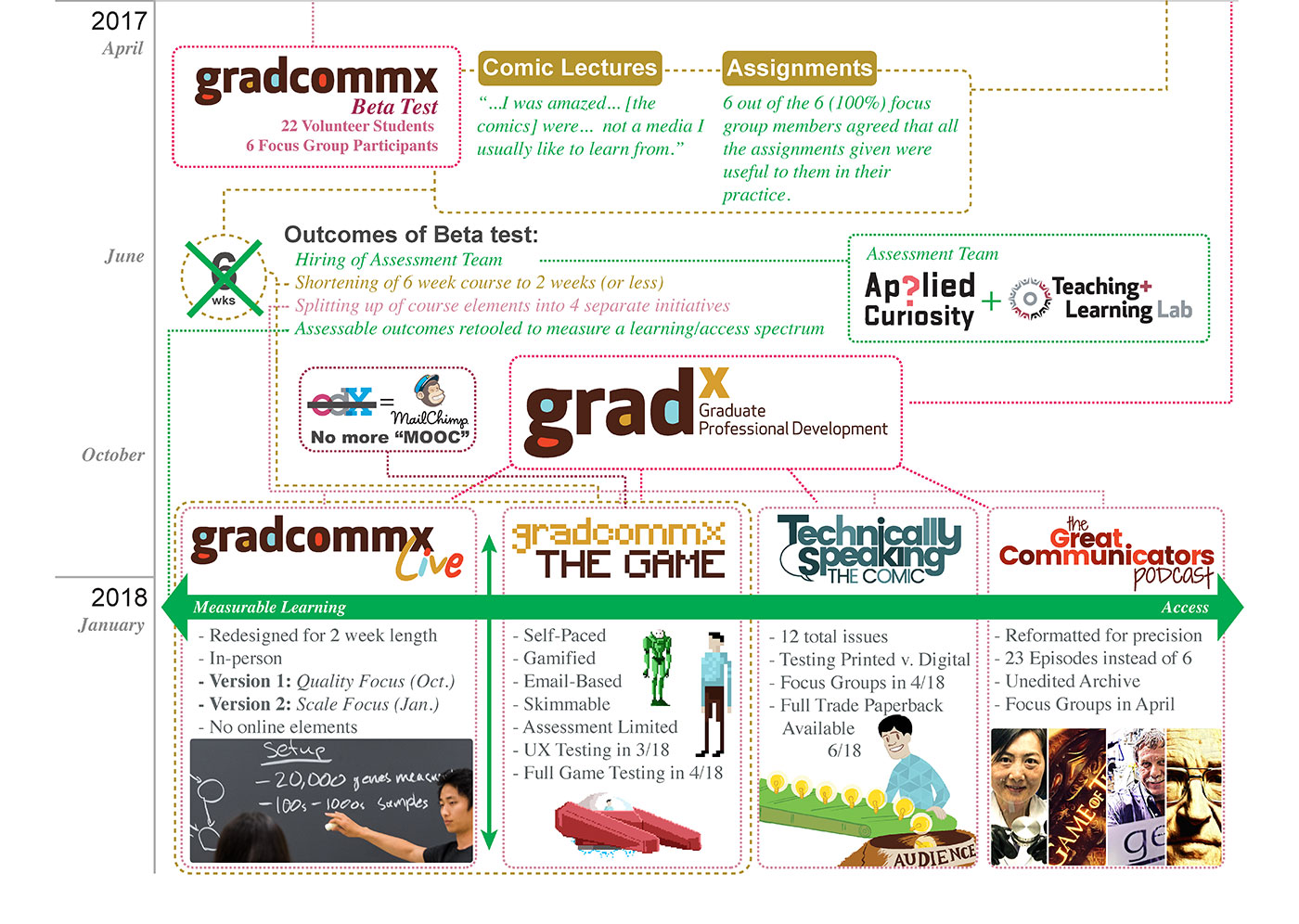
Development Credits
Project Design & Management
Blanche E Staton, Senior Associate Dean for Graduate Education, Office of Graduate Education
Tony Eng, Senior Lecturer, MIT EECS
Heather Konar, Communications Officer, Office of Graduate Education
Patrick Yurick, Instructional Designer, Office of Graduate Education
Project Assessment
MIT Teaching & Learning Lab
Janet Rankin
Anne Marshall
Applied Curiosity Research
Gerad O’Shea, M.A.
Jessica Nguyen, M.ED
John L. Gordon
Richard Li
Remi Mir
Lisette Tellez
All Videos
Executive Produced by Patrick Yurick, Tony Eng, & Heather Konar
Principle Photography by Evan Goldstein of Half Lit Smile
Produced & Edited by Thierry Denis of Helium Films, USA
Produced by Patrick Yurick
Animated by Leeanne Brennan
Comic Art by Patrick Yurick
Principal Photography by Evan Goldstein (Half Lit Smile) & Patrick Yurick
Audio Production by Adam Greenfield & Patrick Yurick
Music
“The People” by Ryan Cullinane
“Folk Psychology” by Nic Bommarito
Licensed Under Creative Commons
Attribution-Noncommercial-Share Alike 3.0
United States License
Vocals & Appearances From:
Ed Boyden
Tony Eng
Yang Shao Horn
Ian Condry
Ted Gibson
Felice Frankel
Michael Walsh
Maha Haji
Tony Eng
Adam Greenfield
“Keeping Audience In Mind When Networking”
Starring Michael Walsh
Filmed on location at the MIT Quantum Photonics Laboratory
Music “D2 Splendid” Licensed Under Creative Commons Attribution-Noncommercial-Share Alike 3.0 United States License
“Starting Research With Narrative”
Starring Elena Glassman & Tony Eng
Animated by Leanne Brennan
Filmed on Location at the MIT Ray & Maria Stata Center
Music “The People” by Ryan Cullinane Licensed Under Creative Commons Attribution-Noncommercial-Share Alike 3.0 United States License
“Giving Context When Discussing Previous Work”
Starring Maha Haji
Filmed on location at the Massachusetts Maritime Academy
Music “Elle Va Au Japon” by Nick Bommarito Licensed Under Creative Commons Attribution-Noncommercial-Share Alike 3.0 United States License
“Explaining The Technical When Teaching”
Starring Dr. Katrina LaCurts
Music “Apace” by Nick Bommarito Licensed Under Creative Commons Attribution-Noncommercial-Share Alike 3.0 United States License
“Controlling Focus When Presenting Data”
Starring Tony Eng & Patrick Yurick
Music “Splendid” Licensed Under Creative Commons Attribution-Noncommercial-Share Alike 3.0 United States License
“Being Concise When Pitching”
Starring Lina Colucci
Featuring footage from Lina Colucci’s TEDx Brussels Talk “Why We Should All Hack Medicine”
Music “Clarinet Trio in D Minor, Op. 3 – Allegro Ma Non Troppo” by Lina Colucci Licensed Under Creative Commons Attribution-Noncommercial-Share Alike 3.0 United States License
Core Curriculum adapted from work by Tony Eng
Art & Game Mechanics by Patrick Yurick
Game Design by Patrick Yurick & Monika Avello
Executive Produced by Patrick Yurick & Heather Konar
Multiplayer Mode by Kay Flewelling
Multiplayer Mode Assistance by Joe Lasley
Hosted & Produced by Adam Greenfield
Executive Produced by Patrick Yurick & Heather Konar
Associate Produced by Christopher O’Keeffe
Website Design
Designed by Patrick Yurick
Edited by Heather Konar & Christopher O’Keeffe
Further Thanks
MITx & Edx for all their support in the early days of this project
The MIT CommLab
MIT W.R.A.P.


